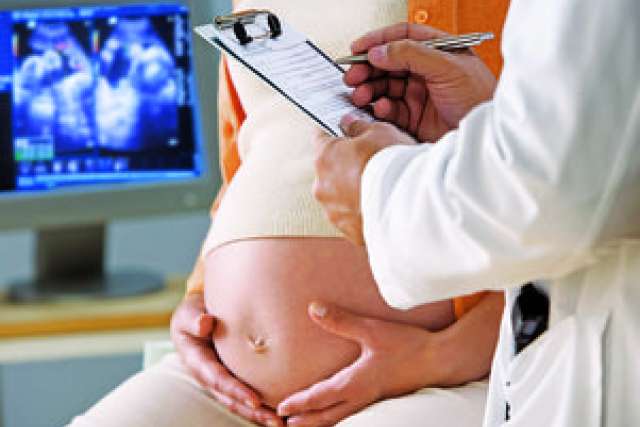According to data from the Centers for Disease Control and Prevention’s National Vital Statistics Reports, more than one in five U.S. births now occur in states where marijuana is legal. That’s triggered a concern among health professionals about the use of marijuana by pregnant women.
Along with the broader availability of marijuana comes the perception that it is a harmless substance, health professionals say. But pregnant women, who may be seeking relief from a variety of ailments, should be aware of the potential health consequences of marijuana use.
To understand how marijuana affects expectant mothers and infants, Ryan Hatoum of UCLA Health spoke with Dr. Leena Nathan, obstetrician-gynecologist at UCLA Health-Westlake Village.
How common is it for pregnant women to use marijuana?
According to a federal report published in the Journal of the American Medical Association, 4% of the pregnant women surveyed in 2014 reported using marijuana during their pregnancy. The actual number may be higher due to underreporting and the fact that marijuana legalization has broadened since the survey was completed.
In addition, more states are enacting marijuana legislation — including California, where last year voters passed Proposition 64, which legalized recreational use of marijuana for adults. As acceptance of marijuana spreads, more pregnant women may begin using it.
Why do women turn to marijuana during pregnancy?
For many pregnant women using marijuana, the draw is the relief it provides for the typical ailments related to pregnancy.
Some women use marijuana to relax and relieve anxiety during pregnancy. Because pregnancy and planning for a new family member can be a source of stress for expectant mothers, marijuana can be seen as a quick solution.
Pain and nausea are other common reasons for use by pregnant women. I have had a few patients say they used marijuana for morning sickness during the first trimester.
What are the risks?
The prevailing science is that marijuana is detrimental to the fetus.
During pregnancy and before birth, tetrahydrocannabinol (THC, the active chemical in marijuana) can cross the placenta and affect the fetus. Marijuana can affect the child's brain function as well as birth weight.
Research is beginning to shine light on the health risks after birth. There is evidence that marijuana exposure in utero can decrease the IQ of the child and make it harder for them to pay attention.
Is there a safer way to use marijuana to reduce the risks?
Consuming edible marijuana is sometimes perceived as safer than smoking it, but I advise pregnant women against both. You may, in fact, experience more THC exposure when eating marijuana rather than smoking it, so there could potentially be an even greater health risk to the fetus.
There's also some discussion around marijuana that mainly contains the compound cannabidiol (CBD) rather than THC – and whether one compound could be safer than the other. That said, I have not seen any strong evidence to suggest that CBD is safer than THC for pregnant women. They should really avoid both.
What are safe ways pregnant women can manage the ailments that might lead them to try marijuana?
Many common ailments of pregnancy are very treatable.
Doxylamine succinate and pyridoxine hydrochloride, a combined medication currently on the market as Diclegis, is very effective for treating morning sickness. Pregnant women can also use ondansetron (Zofran) or metoclopramide (Reglan) with good success.
In other cases, or for those who opt out of prescription medications, over-the-counter options and non-medicinal treatments work well. Vitamin B6, doxylamine, ginger chews and ginger teas can all help — as can acupuncture. Pregnant women can also use acetaminophen or try physical therapy to manage pain.
To alleviate the anxiety that can accompanies pregnancy, start with exercise, as well as consult a therapist, if needed. Women should speak with their doctors about which forms of exercise are safest for them.
What do we still not know when it comes to marijuana and pregnancy?
More research is needed about the potential health consequences for the fetus. We need to know how marijuana affects fetal growth and infant behavior, and we need to know how often this happens.
Timing is important. Many pregnant women only use marijuana in the first trimester for nausea. Research is needed to determine how often, how much and when in their pregnancy women are using the substance and whether these factors affect the health of the mother and child. Another major area of research is the relationship between marijuana use and breastfeeding and how that might harm the health of the child.
We also need to know about marijuana's long-term effects on the placenta and on women during pregnancy. For example, are these women more prone to mood disorders such as anxiety or depression? These are things we just don't know.
In any case, the choice is clear for pregnant women: Based on what we know, women should simply not be using marijuana or other recreational drugs during pregnancy.



